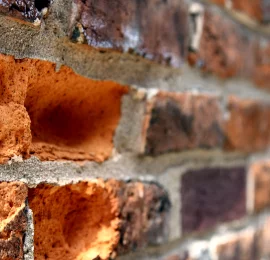Professional Siding Contractor Services to Boost Curb Appeal
Professional Siding Contractor Services to Boost Curb Appeal
Blog Article
Opening the Secrets of Sustainable Stonework Building Practices for Eco-Friendly Structures
In the world of modern-day building, the pursuit of sustainable practices has come to be critical. Amongst the myriad methods to green structure, lasting masonry building attracts attention as a reliable and durable approach that holds a wealth of untapped capacity. From the option of products to ingenious building and construction strategies, the secrets to achieving sustainability within masonry building and construction are diverse and fascinating. By exploring the benefits, products, strategies, and future fads of sustainable masonry, a much deeper understanding of just how these techniques can shape the future of environment-friendly buildings arises.
Benefits of Sustainable Masonry Construction
Accepting sustainable stonework construction practices not only minimizes ecological influence yet also provides lasting economic benefits to builders and communities. By making use of materials like recycled bricks, blocks, and rocks, contractors can substantially lower the carbon footprint of their jobs while promoting resource efficiency. In addition, sustainable stonework building and construction techniques, such as proper insulation and thermal mass residential or commercial properties, can boost power effectiveness within buildings, causing lowered operational costs with time.
Furthermore, the durability and resilience of stonework frameworks add to long-term economic advantages. Structures built utilizing lasting masonry practices commonly call for less repair and maintenance, converting to set you back savings for contractors and residential property owners. The durability of stonework products likewise makes sure that frameworks continue to be stable and safe, minimizing the demand for frequent improvements or substitutes.
Eco-Friendly Masonry Products
Making use of environmentally friendly stonework materials is a crucial action towards improving the sustainability of building practices and reducing ecological influence while optimizing long-term financial benefits. Lasting stonework products are sourced, generated, and made use of in a fashion that lowers general ecological impact. Products such as recycled blocks, reclaimed rock, and sustainable concrete blocks are becoming increasingly popular options for eco-conscious building contractors. Recycled bricks, for instance, not only draw away waste from landfills but also need much less power to create compared to brand-new blocks. Reclaimed stone offers a distinct visual allure while reducing the requirement for brand-new quarrying. Lasting concrete blocks integrate recycled aggregates and might include better insulation buildings, contributing to energy effectiveness in buildings.
Furthermore, all-natural materials like adobe, rammed earth, and straw bundles give outstanding thermal mass buildings, reducing the need for home heating and cooling down energy. These products are commonly in your area readily available, advertising regional economies and reducing transportation-related carbon exhausts. By selecting environment-friendly stonework materials, building and construction projects can significantly reduce their ecological footprint and add to the development of healthier, more lasting constructed atmospheres.
Energy-Efficient Stonework Techniques
Power effectiveness plays an essential role in improving the sustainability of stonework building practices. By carrying out energy-efficient stonework methods, building contractors can significantly reduce the total energy usage of a structure, leading to reduced functional prices and a smaller environmental impact. One key energy-efficient stonework technique is making use of thermal mass, which involves incorporating dense products like concrete or brick into the building's structure to soak up and keep warmth. This helps manage interior temperature levels, minimizing the requirement for mechanical home heating and cooling systems.

Innovations in Sustainable Stonework
Recent innovations in sustainable stonework methods have caused cutting-edge strategies that are reshaping the construction market. One such innovation is the development of self-healing concrete, which makes use of bacteria installed within the concrete to heal cracks autonomously. This advancement not just reduces maintenance prices however likewise improves the sturdiness of masonry frameworks, adding to their sustainability.
One more significant innovation is using recycled accumulations in stonework construction - masonry contractor. By including products such as crushed ceramic waste or recycled glass into concrete blends, builders can decrease the environmental influence of construction jobs while keeping structural stability. This method not only draws away waste from useful link garbage dumps however additionally saves natural deposits, making it a vital innovation in sustainable stonework building
Additionally, the combination of electronic layout tools, such as Building Information Modeling (BIM), is reinventing the method stonework frameworks are planned and created. BIM allows for more precise estimations, decreased material wastage, and improved power effectiveness, inevitably bring about even more sustainable building methods. These advancements jointly signify a promising future for lasting stonework building in the era of green buildings.
Future Trends in Stonework Sustainability
With the cutting-edge strides made in lasting stonework techniques, the future trends in stonework sustainability are positioned to more transform the building industry. One of the key trends shaping the future of stonework sustainability is the increased integration of technology. Innovations such as Building Info Modeling (BIM) and online reality simulations are being utilized to optimize masonry construction processes, resulting in reduced material waste and boosted energy efficiency in structures.
Moreover, the advancement of novel sustainable materials is set to play a substantial duty in enhancing the eco-friendliness of masonry construction. masonry contractor. Developments like self-healing concrete, recycled aggregates, and bio-based binders are obtaining traction for their capability to minimize environmental impact while keeping structural integrity

Verdict
Finally, lasting stonework building and construction practices supply many advantages for environmentally friendly structures. By using eco-friendly products and energy-efficient methods, stonework can add to a much more lasting constructed environment. Innovations in lasting masonry are continuously being developed to further improve the ecological performance of buildings. Looking towards the future, the pattern of masonry sustainability is anticipated to expand, bring about more ecologically friendly and energy-efficient building practices in the years to find.
Report this page